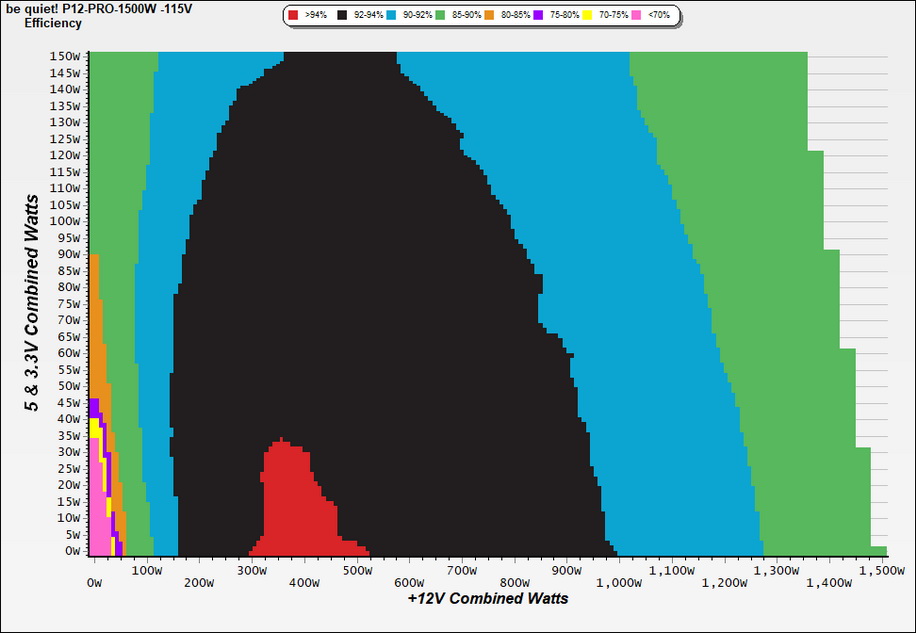Why you can trust Tom's Hardware
Protection Features
Check out our PSUs 101 article to learn more about PSU protection features.
| Protection Features | Row 0 - Cell 1 |
OCP (Cold @ 25°C) | 12V1: 60.2A (150.5%), 11.991V 12V2: 56.3A (140.75%), 11.822V 12V3: 58.9A (147.25%), 11.720V12V4: 59.6A (149%), 11.7V12V5: 60.2A (133.78%), 11.774V12V6: 66.6A (148%), 11.771V 5V: 35.7A (142.8%), 5.027V 3.3V: 36.7A (146.8%), 3.301V 5VSB: 5.2A (148.57%), 4.827V |
OCP (Hot @ 41°C) | 12V1: 59.7A (149.25%), 11.978V |
OPP (Cold @ 28°C) | 1846.62W (123.11%) |
OPP (Hot @ 43°C) | 1826.56W (121.77%) |
OTP | ✓ (90°C @ 12V Heat Sink) |
SCP |
12V to Earth: ✓ |
PWR_OK | Proper operation |
NLO | ✓ |
SIP | Surge: MOV |
Evaluating the protection features of this PSU was a daunting task because of the high number of 12V rails. Moreover, according to our new testing protocol, we evaluate OCP and OPP under both hot and cold operation to have a clear view of the protection features circuit under different environmental conditions.
Keeping the same triggering points at both high and low temperatures can be a problem for PSUs that utilize analog controllers and passive parts like resistors and current transformers. These passive parts are affected by ambient temperature. On the contrary, this is not a problem for digital controllers where you can easily compensate for a possible drift, which is clearly shown in the OCP cold and hot rows, where the triggering points are identical.
The OCP triggering points are higher than our ideal setting (130%), but in no case, this leads to high voltage drops or/and increased ripple. Moreover, the PSU was able to deliver a pretty high load before shutting down, something that it wasn't the case in our standard tests at 46 degrees Celsius, where anything close to 110% of the unit's max power led to shutting down, with both 115V and 230V input. Most likely, the high operating temperature played a role there.
DC Power Sequencing
According to Intel’s most recent Power Supply Design Guide (revision 1.4), the +12V and 5V outputs must be equal to or greater than the 3.3V rail at all times. Unfortunately, Intel doesn't mention why it is so important to always keep the 3.3V rail's voltage lower than the levels of the other two outputs.
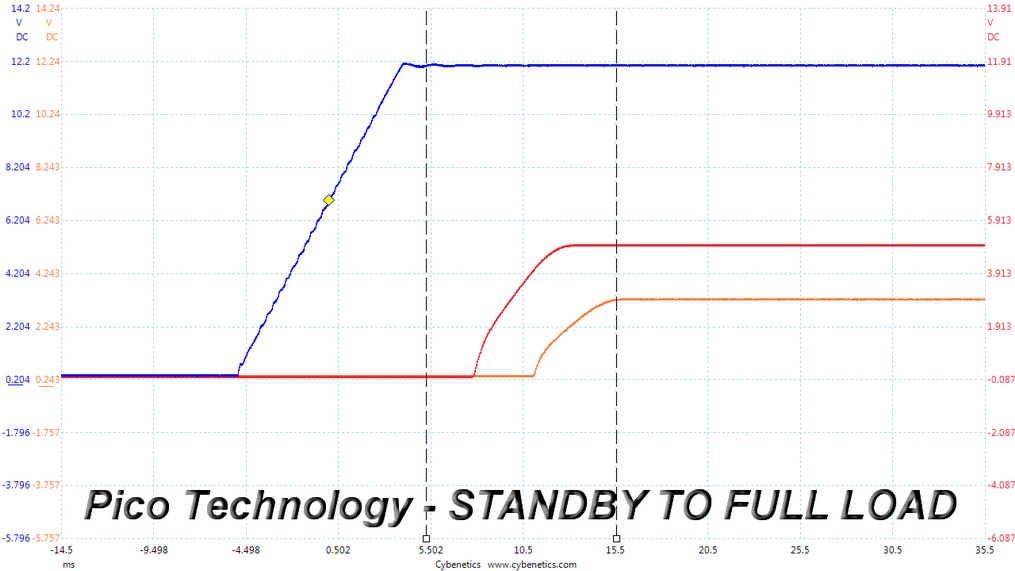
DC Power Sequencing Scope Shots
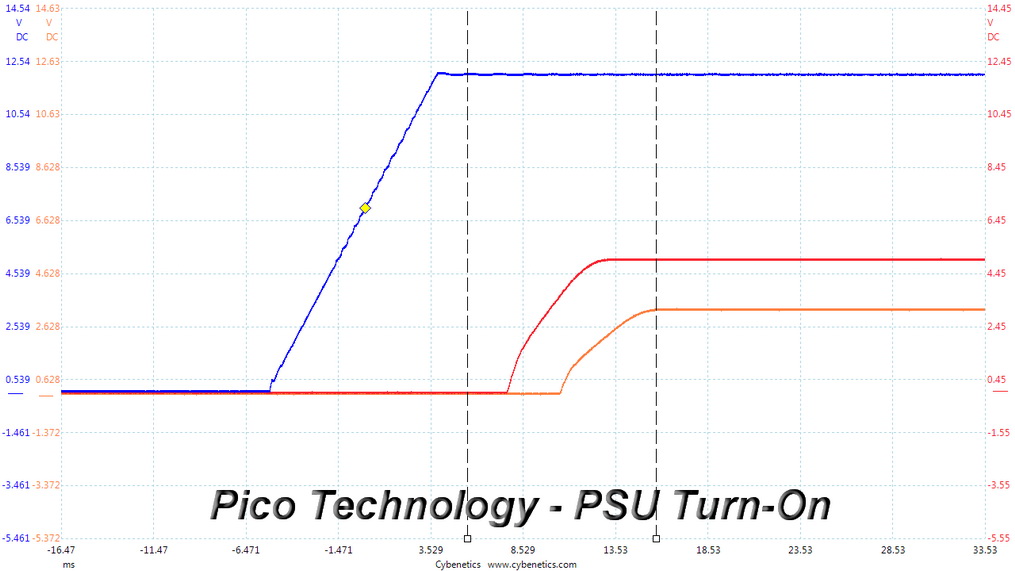
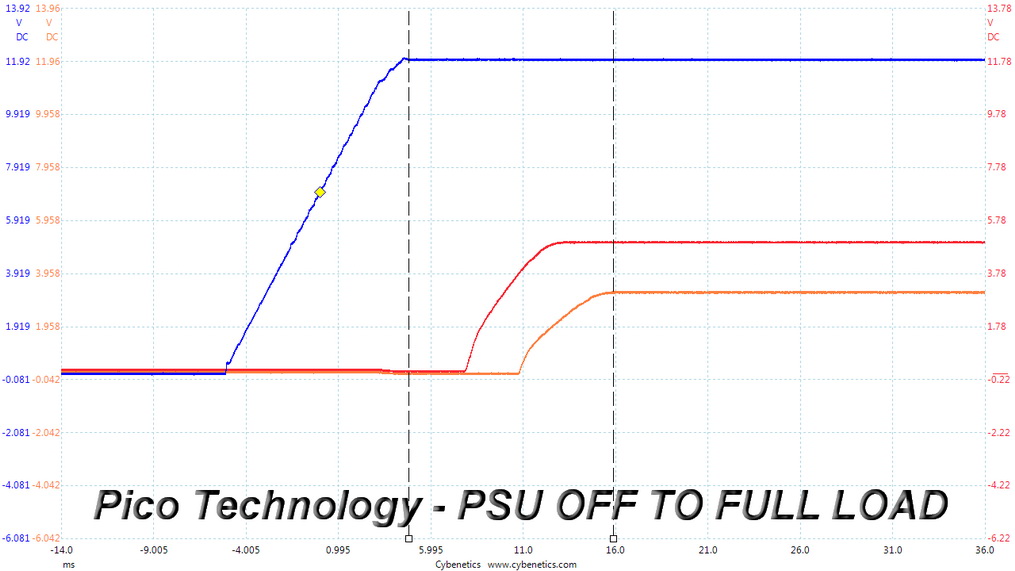
The 3.3V rail is always lower than the other two, as the ATX spec requires.
Cross Load Tests
To generate the following charts, we set our loaders to auto mode through custom-made software before trying more than 25,000 possible load combinations with the +12V, 5V, and 3.3V rails. The deviations in each of the charts below are calculated by taking the nominal values of the rails (12V, 5V, and 3.3V) as point zero. The ambient temperature during testing was between 30 to 32 degrees Celsius (86 to 89.6 degrees Fahrenheit).
Get Tom's Hardware's best news and in-depth reviews, straight to your inbox.
Load Regulation Charts
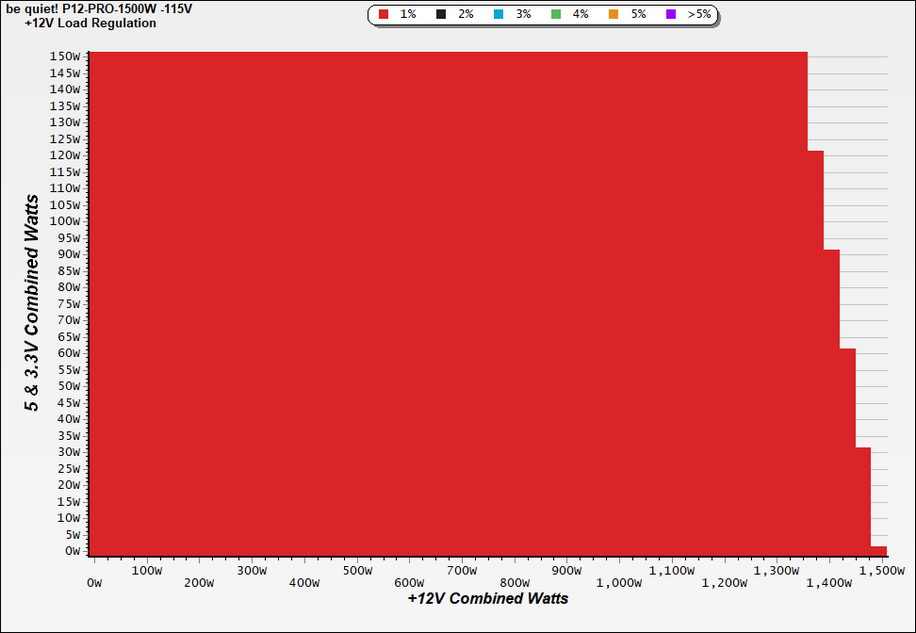
Load Regulation Charts
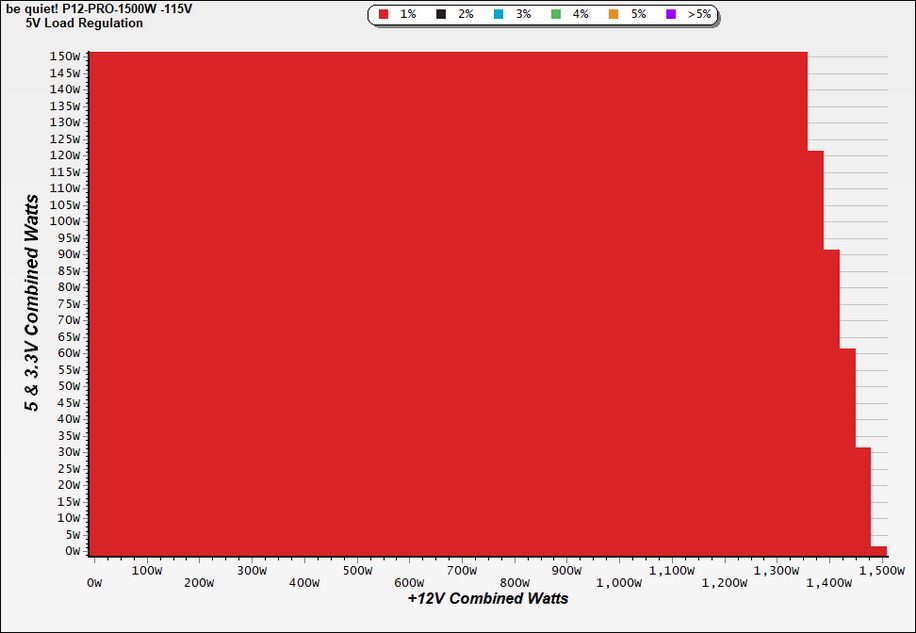
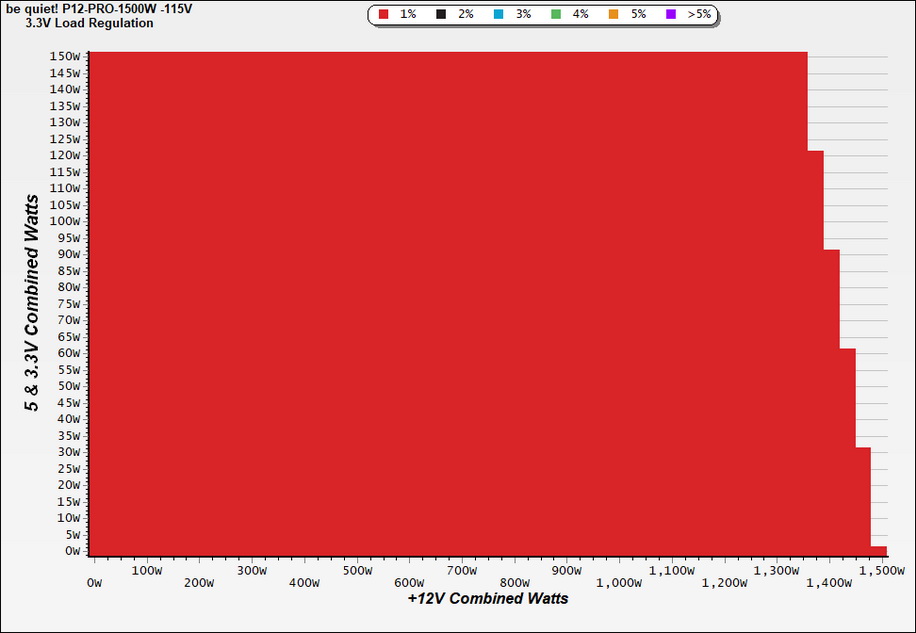
Efficiency Chart
Ripple Charts
The lower the power supply's ripple, the more stable the system will be and less stress will also be applied to its components.
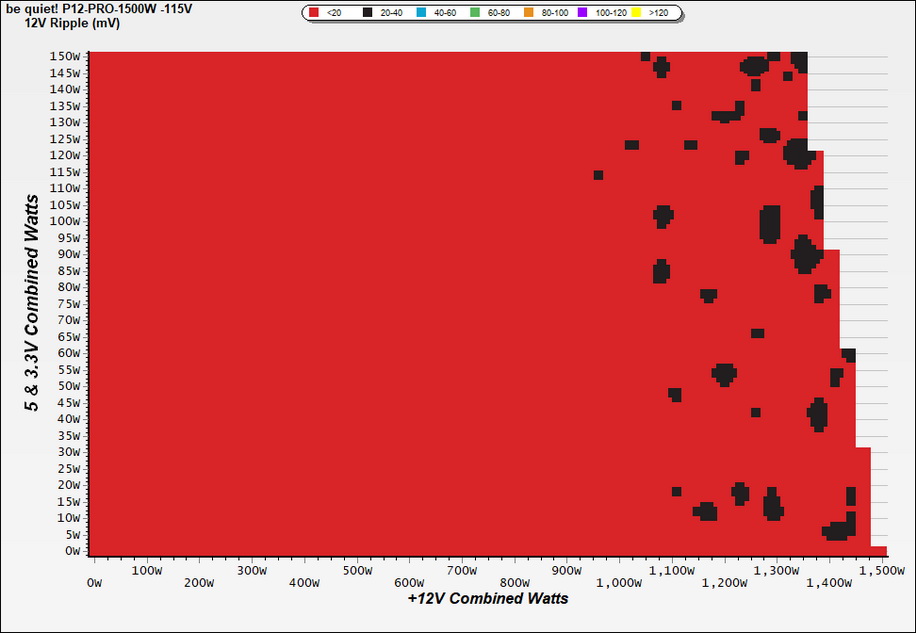
Ripple Suppression Charts
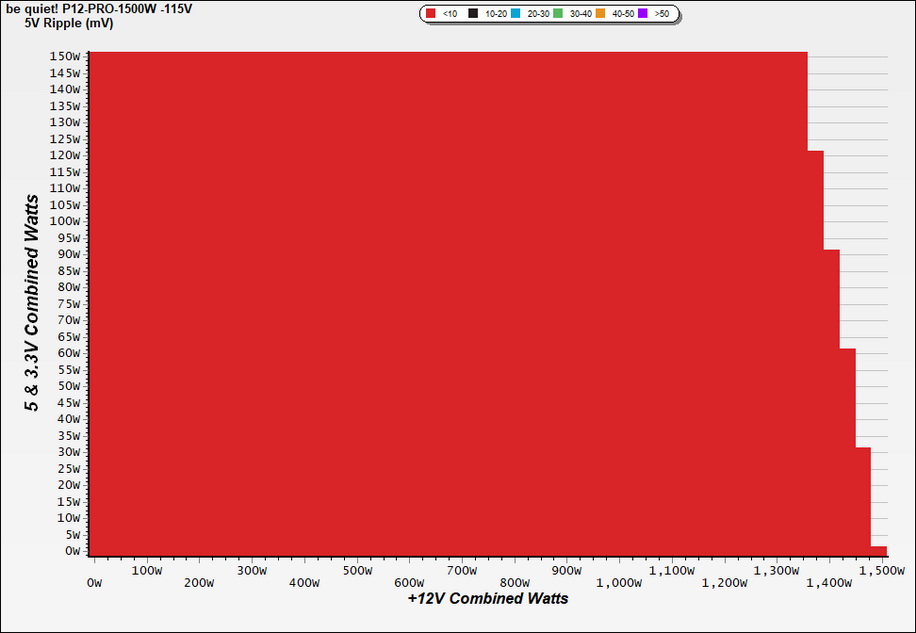
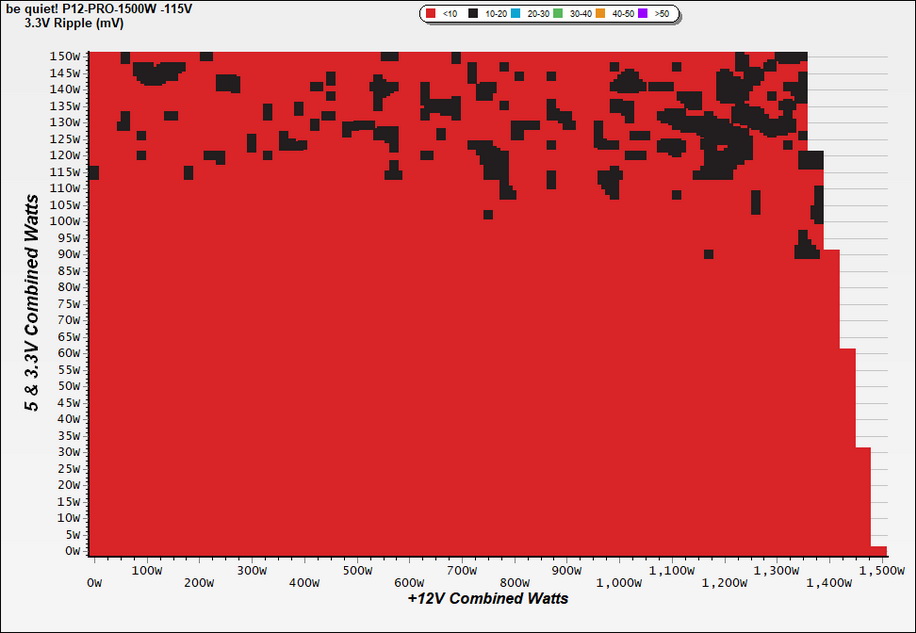
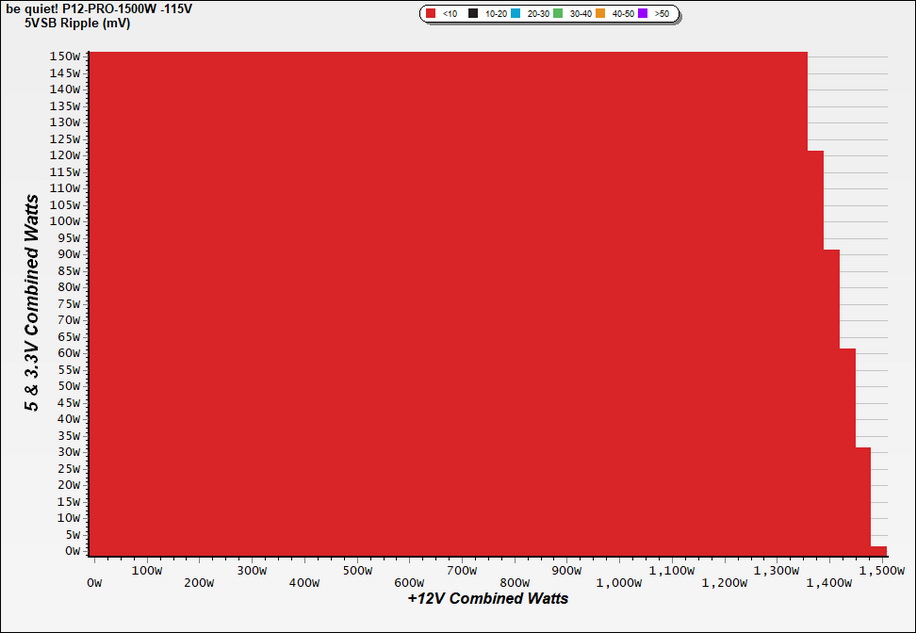
Infrared Images
We apply a half-load for 10 minutes with the PSU's top cover and cooling fan removed before taking photos with a modified FLIR E4 camera able to deliver an IR resolution of 320x240 (76,800 pixels).
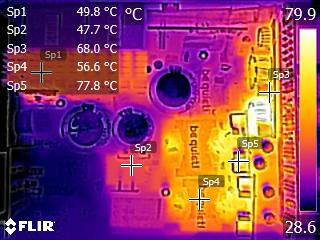
IR Images
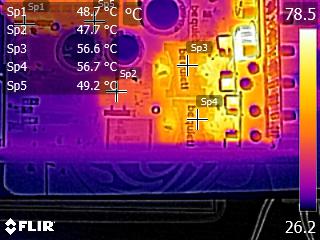
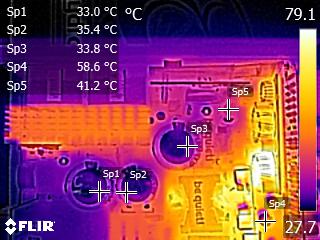
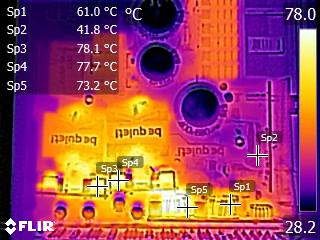
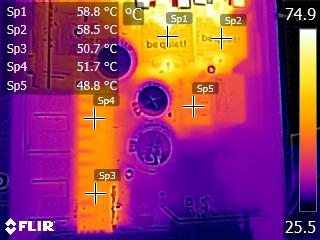
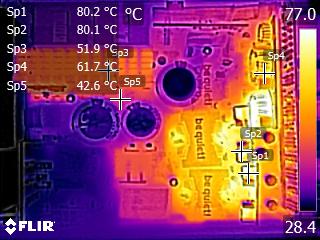
The highest temperature is recorded on one of the two coils of the DC-DC converters. The large electrolytic caps between the 12V board and the modular PCB take a bit of stress under the conditions we applied. Still, if the unit's fan is in operation, which will be the case in real life, their operating temperatures will be lower since nothing obstructs airflow in this area.
MORE: Best Power Supplies
MORE: How We Test Power Supplies
MORE: All Power Supply Content
Current page: Protection Features, DC Power Sequencing, Cross-Load Tests and Infrared Images
Prev Page Load Regulation, Hold-Up Time, Inrush & Leakage Current, Efficiency and Noise Next Page Transient Response Tests, Timing Tests, Ripple Measurements and EMC Pre-Compliance Testing
Aris Mpitziopoulos is a contributing editor at Tom's Hardware, covering PSUs.
-
patrick47018 Reply
Try the EVGA G+ instead, or you could buy the Dark Power Pro 12 on Amazon right now with the 1200W in stock and the 1500W coming and able to be ordered.tamalero said:Been trying to find a Corsair AX and EVGA T2 and nobody has them on stock! -
mac_angel I've never seen a power supply with an "overclock" jumper/setting. You mention that this has it, and that it combines the 'virtual' single 12v rails into a single big one, but not what that means.Reply
